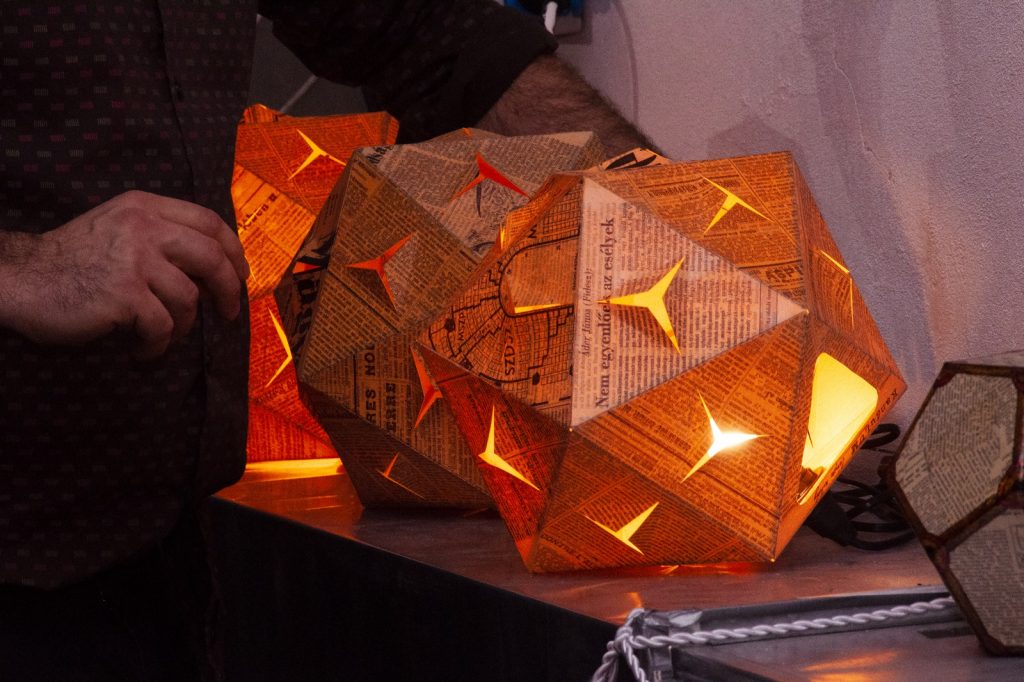The https://english.atlatszo.hu use cookies to track and profile customers such as action tags and pixel tracking on our website to assist our marketing. On our website we use technical, analytical, marketing and preference cookies. These are necessary for our site to work properly and to give us inforamation about how our site is used. See Cookies Policy
Journalism prize ’About poverty with dignity’ awarded, among others, to Index, 24.hu, RTL Klub, Népszava and Abcúg
The Hungarian Anti-Poverty Network (Magyar Szegénységellenes Hálózat – MSZEH) held its award ceremony for its media prize called ’About poverty with dignity’ on Wednesday. The network founded the prize three years ago with the aim of recognizing journalists who report on poverty appropriately: with dignity, nuance, solidarity, and care.
This year the jury recognized articles or video productions that did not only report on the depths and misery of poverty and emphasized the helplessness of the situation but offered a way out of the unfortunate circumstances. The jury looked for a perspective, a solution to the problem of being poor and marginalized.
György Balavány received the first prize for his story published on website 24.hu. The author traveled to some of the ten poorest towns in Hungary to talk to locals about their lives. His style is simple and raw – Balavány does not explain or analyze, he just shows the readers the reality. ’Which direction do you see the way out?’ he asks a person who has been living in poverty for decades. ’Nowhere’ he says.
Right next to the words of the citizens of these towns Balavány presents excerpts from documents written by local social services that help the readers understand the context. Balavány’s story does not offer any solutions to the poverty but the life stories he presents stand like huge questions marks urging his readers to do something to help their fellow citizens.
Nem akarom, hogy a gyerekem is sárga mellényben söpörje a járdát | 24.hu
Galambospuszta – vágja rá Batáné Győrffy Anikó, a Szigetvári Család- és Gyermekjóléti Központ vezetője a kérdésemre, hogy melyik a legjellemzőbb zsákfalu errefelé. A zsákfalu olyan falu, ahová odamész, és nincs tovább. Galambospuszta Szentegáthoz tartozik.
Judit Doros of Népszava received the special prize for print and online writing. She was recognized for two of her stories.
The first story is about a blind man who helps the Roma community and is a complete opposite of the usual stereotypical presentation of such groups. Zsolt Kiss moved to Tiszavasvári 20 years ago, married a Roma girl with whom they adopted a little girl. This encouraged him to help the local community: he accompanies them to the town hall or offices or municipal departments if they need something arranged. He helps them fill out official forms, helps them understand questions and helps form the answers. He often takes the bus with them when they go to an office or to the doctor because someone accompanying a blind person on public transport in Hungary gets a huge discount thus this helps the economically disadvantaged members of the Roma community.
Egy vak férfi a tiszavasvári romák támasza
A város zömmel romák lakta büdi városrészében él egy nem cigány, vak férfi, akinek élete nagyrészt azzal telik, hogy a helyieknek segít. Kiss Zsolt látóként született, de ifjú korában, egy szerencsétlen emelés következtében leszakadt mindkét retinája, és elvesztette látásának kilencvenöt százalékát. A véletlen sodorta Tiszavasváriba, egy barátja hívta meg néhány hétre, aztán itt ragadt.
The story is special because of its positive attitude and because the blind man is not a person who needs help but the one who is determined, open, active and helping others. He is living the life he chose even if this meant that he had to break all connections with his parents.
The other story by Judit Doros presents an octogenarian couple who moved back to Hungary from the United States and who spend about two million Hungarian forints (approximately 6200 euros at today’s exchange rate) every month to help poor families. The husband says that they help simply because they can and that they want to help people who had made bad decisions get back on track. The couple is now also helping Zsolt Kiss and his daughter.
Emberi sorsokba fektetnek
Egy Amerikából hazatelepült, lassan nyolcvan éves házaspár eddig közel ötven rászoruló családot húzott ki a bajból: havonta nagyjából kétmillió forintot költenek erre. A roma családokat önként segítő, vak férfiről, a tiszavasvári Kiss Zsoltról néhány hete írt a Népszava.
One of the special prizes for the TV and video category went to Norbert Szirmai who presented the story of Veronika Juhász, a female Roma Paralympian.
The other prize in this category went to Máté Szilágyi and Tamás Szilli of Index for their story on Béla Molnár-Gál, a religion teacher who is also the headmaster of the Don Bosco School in the town of Kazinczbarcika. Molnár-Gál helps poor and disadvantaged children as well as Roma families in the area.
Molnár-Gál was himself awarded the prize for goodwill and social work. „I just want to show the way out to those who need it and those who want to change. I want to show them that there are other options besides the workfare program, that there are jobs, that they can learn a trade, or that maybe they could delay having a family. We respect each other here’ he said to Index.
Ehhez a hittantanárhoz boxer és vipera kell
Ehhez a hittantanárhoz boxer és vipera kell – Molnár-Gál Béla egy kazincbarcikai iskola igazgatója, hátrányos helyzetű gyerekeken és borsodi cigány családokon segít, pedig eleinte nem volt könnyű dolga. Rájött, mi kell ahhoz, hogy valódi segítséget adjon.
The first prize for TV and video went to TV Channel RTL Klub where Judit Moskovics shot a film about one day in the life of a woman who cares for his disabled son.
Bekameráztuk: egy nap otthonápolás
Jutka Magyarország egyik legkeményebb munkáját végzi, mindezt elképesztő derűvel és kitartással. Soha nem lazíthat, soha nem mehet szabadságra, mégsem panaszkodik. Mindezért havonta mindössze 52 ezer forintot kap az államtól.
Eszter Neuberger of Abcúg also was awarded a prize, the professional award for her story about those who are forced out of Budapest to live in poor areas and this slide even further into deprivation.
Gazdag telkesek között bújnak meg a lakhatási válság áldozatai – Abcug.hu
Inkább választják a rosszabb lakókörülményeket, minthogy távol kerüljenek a munkalehetőségektől, ami sokszor továbbra is Budapesthez köti őket, a város pezsgése után viszont nagyon nehezen szoknak hozzá a hétvégi házas övezet vagy a homoki dűlők csendjéhez és – úgy érzik – ingerszegénységéhez.
The media prize ’About poverty with dignity’ is supported by the ERSTE Stiftung. Átlátszónet Foundation took part in the organization and management of the award ceremony.
Written by Barbara Vitrai
English version by Anita Kőműves. You can read the original, Hungarian-language story here.

Share:
Your support matters. Your donation helps us to uncover the truth.
- PayPal
- Bank transfer
- Patreon
- Benevity
Support our work with a PayPal donation to the Átlátszónet Foundation! Thank you.
Support our work by bank transfer to the account of the Átlátszónet Foundation. Please add in the comments: “Donation”
Beneficiary: Átlátszónet Alapítvány, bank name and address: Raiffeisen Bank, H-1054 Budapest, Akadémia utca 6.
EUR: IBAN HU36 1201 1265 0142 5189 0040 0002
USD: IBAN HU36 1201 1265 0142 5189 0050 0009
HUF: IBAN HU78 1201 1265 0142 5189 0030 0005
SWIFT: UBRTHUHB
Be a follower on Patreon
Support us on Benevity!



